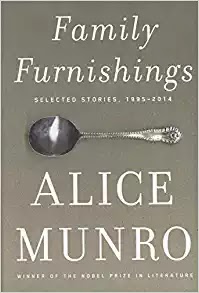Mothers Tell Your Daughters By, Bonnie Jo Campbell
Bonnie Jo Campbell's stories are hysterically funny. According to The Guardian, she is one of the top ten writers of "Rural Noir." She is the champion of working class people, who are poor but resilient and she is fighting for them. This book depicts the fraught relationships between mothers and daughters, with scrappy blue collar men, who may stay or leave and the problems that ensue.
In the story, "My Dog Roscoe" the opening paragraph sets the stage.
"As my big sister predicted from her cell in the county jail, I became pregnant early into my marriage, to Pete the electrician. That Tarot reading Lydia, did her last reading, before one of her cellmates reported her so-called activities, to the authorities and her cards got taken away."
All of these stories, are blemished, raw, stained and burnished with love, wounded wisdom and the belief that if you try hard enough you may not win, but, you may have learned something along the way.
Water Nine Stories By, Alyce Miller
Ms Miller writes fables, or dreams and you feel as though you are caught midstream, and the ending is never tied up in a pretty bow. I found all of these stories to be thought provoking and have an ending that is suspended, leaving it up to the reader to formulate the ending. The central theme of water can be healing and destructive, in the story, "Swimming" the opening sentence is, "Water was a way of forgetting. The very Blueness cast its spell, drawing her away from remembering."
In this story, the narrator, Helen swims everyday as a means of relieving stress, and as a means of 'forgetting.' She has had three miscarriages and the death of each one, resonates within her, "What happens to a baby that is not born?"
"One of Helen's friends, a staunch believer in reincarnation, suggested that some babies took several tries, that they chose their time. According to her curandero, Helen should try again. Try again. How many times do you try?"
It's a touching tale of imagined Motherhood and the trauma of miscarriages. She is overcome with grief, and the inability to describe the loss of a child in early stages of development, and is haunted by the ghost of a child.
Family Furnishings By Alice Munro
I adore Alice Munro. She is a critically acclaimed Canadian short story writer who won the Man Booker prize in 2009 and the Nobel Prize in Literature in 2013. She is the author of 14 books of Short Stories. All of her stories have a interwoven thread of love and loss, relationships, family, the small towns, and everyday life in Ontario and beyond.
In the story, Jakarta, two young married women, are on a beach vacation. As they people watch and gossip they are captivated by other women, particularly 'the Monicas' who are pregnant or recently gave birth because they have lost their figures. The story then speeds up as we see the same women in present day, both marriages have ended. The story is a slice a life, a day in the life magnified and then transposed to the future, in the context of a life long continuum.
In the words of Hermione Lee, who reviewed this book for The New Yorker, "In the simplest of words, and with the greatest of power, she makes us see and hear an 'unremarkable/ scene we will never forget."
A Manual For Cleaning Women By, Lucia Berlin
Lucia Berlin was an American Short Story writer who had a small following but, did not reach mass appeal until after her death in 2004. Her stories are based on real life experiences as she worked in the service industry as a cleaning woman, as a receptionist in the E.R. and as a swtichboard operator. She has been called one of America's best kept secrets.
Her books have recently been reintroduced with critical acclaim. She has clearly 'walked the walk' as she struggled most of her life, as a single Mother of 4 boys.
In the short story, "So Long" she writes, "He came with roses, a bottle of brandy and four tickets to Acapulco. I woke up the boys and we left." There is always a ounce of detachment in her stories as she speaks of the need for compassion and also the fear of it, drawing you in.
But its her descriptive language that will draw you in. "We came to the bridge and the smell of Mexico. Smoke, chili and beer. Carnations, candles and kerosene. Oranges, Delicados and urine. I buzzed the window down and hung my head out, glad to be home."
The Paper Menagerie and Other Stories By, Ken Liu
Mr. Liu writes Fantasy Fiction which read like Folklores and Fairytales. In this collection, he writes a indelibly touching story about his Mother called, "The Paper Menagerie."
The story is about a bi-racial boy, named Jack who's Mother is Chinese and his Father is American. His Father signs up for a service, looking for a wife, and found her in a 'catalog.' In the catalog, she was listed as 18, spoke very good English and loved to dance. None of that was true.
Once born, Jack and his Mother struggle to formulate a relationship. She never learns English, and Jack is embarrassed by her inability to learn English and 'fit in.' She teaches Jack the art of Origami, and they make animals together that 'come alive.'
Years later, Jack looks back at the memory of making Origami animals with his Mother and the value of tradition. It is a touching and memorable story that will leave you with an indelible impression.







